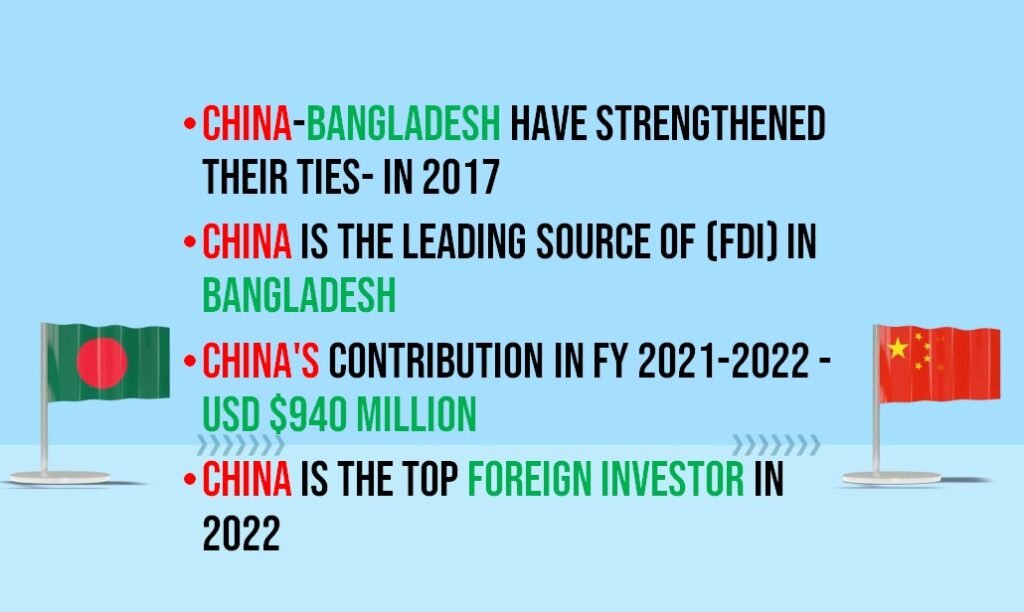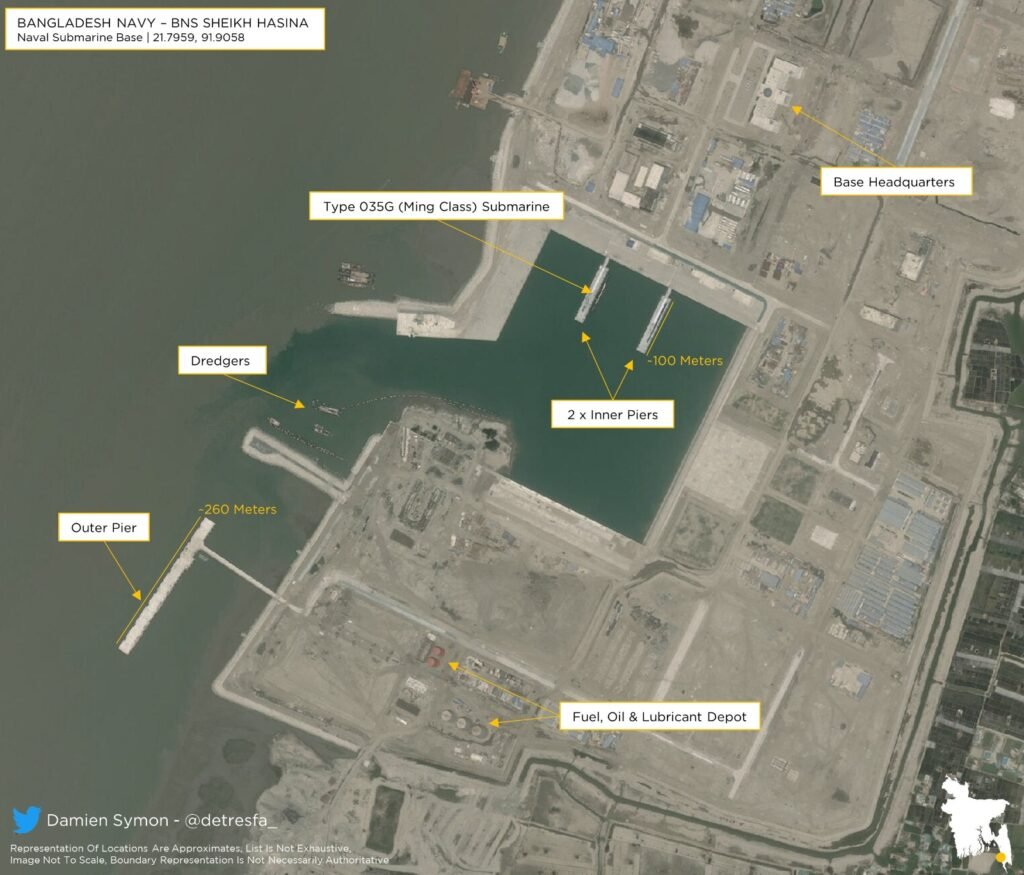Highlighting the significance of stability in Bangladesh, Chinese Ambassador Yao Wen expressed optimism about the nation’s future being shaped by its own people. He underscored China’s unwavering commitment to non-intervention and conveyed a keen interest in maintaining cooperation and stability following the upcoming election. Speaking at the “BRI@10: Ushering in Next Golden Decade” event hosted by the Diplomatic Correspondents Association, Bangladesh, on November 9, 2023, he reiterated China’s policy of non-interference in the internal affairs of other countries.
You can also read: CEC’s Bold Stand: Ensuring Fair Elections with Zero Tolerance for Irregularities
Ambassador Yao also discussed the possibility of a free trade agreement between the two countries. He expressed China’s interest in increasing trade and investment, emphasizing the need for balanced trade and product diversification. Regarding the Rohingya repatriation, he called it a complex process requiring international support, stressing the poor conditions of the Rohingyas and the need for collective efforts.
Earlier on August 16, he reiterated the consistent stance, stating, “Our policy always remains unchanged. China refrains from intervening in the internal affairs of other nations, including Bangladesh’s elections, as they are internal matters.”
China’s Role to Resolve the Rohingya Crisis
The international community insists on a diplomatic and political resolution to the Rohingya situation. Despite continuous pressure from the US and Western nations on Myanmar, the safe return of the Rohingyas has proven elusive. While Bangladesh aims for a prompt repatriation, Ambassador Yao emphasizes the complexity of the process and the need for global support.
He highlights the dire condition of the Rohingyas, stressing the involvement of all stakeholders in achieving the repatriation goal. In September 2019, Bangladesh, Myanmar, and China jointly crafted a tripartite method for repatriation during the UN General Assembly. The three nations established a collaborative working group, but due to security issues in Rakhine State, repatriation remains unfeasible.
China initiated the trilateral meetings in 2018, and a virtual session took place on January 20, 2021. Although negotiations concluded with a scheduled repatriation start by June 2021, it is yet to happen. A proactive approach from China could expedite the resolution of this crisis. The Bangladesh government has taken steps towards a tripartite reconciliation initiative involving Myanmar and China.
Bangladesh-China Relationship
Over the past few years, Bangladesh has experienced a notable improvement in its ties with China, particularly in economic and defense cooperation.
Economic Ties
Since 2017, China and Bangladesh have strengthened their ties, making China Bangladesh’s largest trading partner with investments expected to surpass USD $40 billion. China has invested approximately USD $9.75 billion in transportation projects like the Padma Bridge Rail Link, Bangabandhu Tunnel, and Dasher Kandi Sewerage Treatment Plant. This collaboration has significantly impacted economic cooperation, infrastructure development, and overall bilateral relations. China has become the leading source of foreign direct investment (FDI) in Bangladesh, contributing USD $940 million in the fiscal year 2021-2022 and ranking as the top foreign investor in 2022. Despite challenges from the COVID-19 pandemic, bilateral trade between the two nations increased by 58 percent in the previous year, showcasing the resilience of their trade relationship.

China’s introduction of duty-free access for 97 percent of Bangladeshi products in its market since July 1, 2020, has been a key development. This initiative, later extended to cover 98 percent, demonstrates China’s commitment to strengthening trade relations and supporting Bangladesh’s export-oriented industries. The duty-free access has proven beneficial by reducing trade barriers and creating favorable conditions for Bangladeshi goods in the Chinese market.
Stronger Defense Ties
Over the past five years, Bangladesh’s military ties with China have significantly strengthened and become more transparent. Emerging as China’s second-largest arms customer, Bangladesh represents approximately 17 percent of Chinese military exports (2016-2020). Defense collaboration involves personnel training and joint efforts in defense production. Despite previous challenges with Chinese-supplied equipment, Bangladesh acquired submarines in 2016, enhancing naval capabilities. Prime Minister Sheikh Hasina inaugurated the BNS Sheikh Hasina submarine base in Cox’s Bazar in March 2023, built by China at a cost of USD $1.2 billion, capable of housing six submarines and multiple warships. This development marks a substantial boost to Bangladesh’s naval strength, potentially influencing regional dynamics.

- Bangladesh represents -17 percent of Chinese military exports (2016-2020).
- PM Sheikh Hasina inaugurated the BNS Sheikh Hasina submarine in March 2023,
- It is located in Cox’s Bazar
- It is built by China at a Cost – USD $1.2 billion
- It is capable of housing -6 submarines and multiple warships
Furthermore, China has recently entered into an agreement to deliver 23 Hongdu K-8W intermediate training jets to the Bangladesh Air Force, enhancing their military collaboration.
The Chinese ambassador also expressed China’s desire for the people and political parties in Bangladesh to reconcile their differences, ensuring a conducive environment for the upcoming election.
In 2016, President Xi Jinping visited Bangladesh, marking the initiation of a new phase in China-Bangladesh Belt and Road cooperation, as announced by him and Prime Minister Sheikh Hasina.
Since then, the seeds of hope planted by China and Bangladesh have flourished through the dedicated efforts and nurturing care of both nations, the ambassador remarked. “Over the past seven years, we have constructed 12 highways, 21 bridges, and 27 power and energy projects in Bangladesh, playing a crucial role in transforming the aspirations of the Bangladeshi people into tangible reality.”


